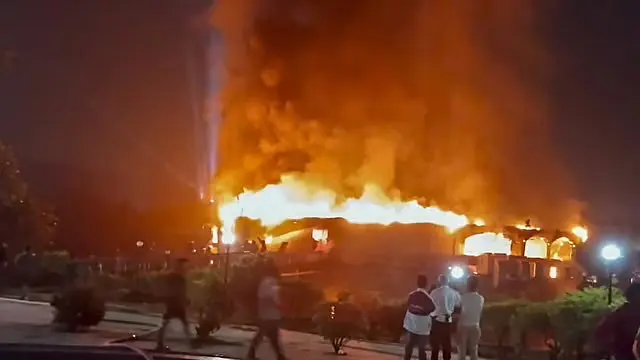A descendant of the Mughal dynasty has taken the significant step of reaching out to the United Nations, seeking protection for the tomb of Emperor Aurangzeb, one of the last prominent rulers of the Mughal Empire. The appeal highlights the historical and cultural importance of Aurangzeb’s final resting place, located in the city of Aurangabad, Maharashtra, India. In a letter addressed to the UN, the descendant emphasizes that the tomb not only serves as a mausoleum but also as a symbol of India’s rich and complex history, which encompasses a diverse tapestry of rulers, cultures, and religions.
The Mughal Empire, known for its remarkable contributions to art, architecture, and culture, left an indelible mark on Indian history. Aurangzeb, who ruled from 1658 to 1707, is often a controversial figure, with his reign characterized by both significant territorial expansion and a complex relationship with various religious communities. The descendant’s initiative to seek international protection underscores a growing concern regarding the preservation of historical sites, particularly those associated with figures who have polarized opinions in contemporary discourse. The letter calls for the international community’s attention to ensure that the tomb is safeguarded against potential vandalism or neglect.
In recent years, there has been an increasing trend of cultural and historical sites facing threats due to political changes, communal tensions, and a lack of resources for maintenance. The plea to the UN is not just about preserving a single tomb; it is indicative of broader issues surrounding heritage conservation in India and the need for a collective effort to protect the country’s diverse historical narrative. The descendant’s actions resonate with a global movement advocating for the protection of cultural heritage, reflecting the belief that such sites are vital for future generations to understand and appreciate their shared history.
As the letter gains attention, it raises important questions about how societies value their historical figures and the legacies they leave behind. By seeking UN intervention, the descendant is not only advocating for Aurangzeb’s tomb but also calling for a reevaluation of how history is taught and perceived. The protection of this site could serve as a crucial step toward fostering a more inclusive understanding of India’s multifaceted past, encouraging dialogue and reflection rather than division. The outcome of this appeal may have implications for similar historical sites across the region, emphasizing the need for a balanced approach to heritage conservation that respects all aspects of a nation’s history.




